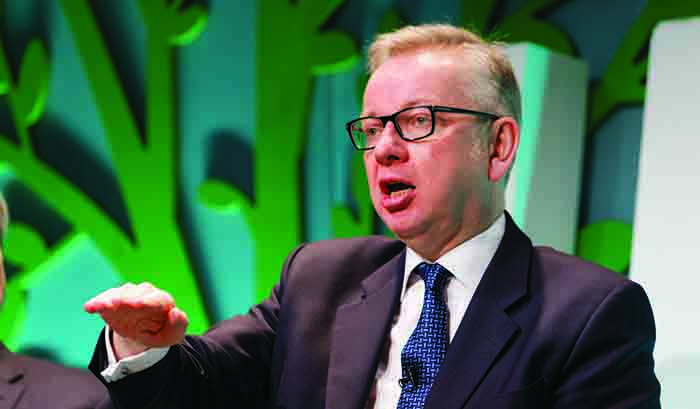The pig sector will receive some import tariff protection if we leave the EU without a deal at the end of March, Michael Gove has indicated.
The Defra Secretary told the NFU conference the Cabinet has been discussing its import tariff regime in the event of a no deal, with an announcement expected later this week.
Mr Gove pledged that the Government will introduce ‘specific and robust protections for farming’ in its post-Brexit tariff-regime. However, the details remain unclear and he fell short of guaranteeing that import tariffs applied on the EU would be equivalent to the levels applied by the EU.
“The NFU and others have made strong arguments about the need to ensure stronger tariff protection for British farming than any other sector of the economy,” he said.
“In particular, you have argued that we need tariffs on sheepmeat, beef, poultry, dairy, both milk and cheese; and pig meat in order to safeguard domestic production. Your concerns have been heard and announcement on new UK tariffs in a no deal scenario – with specific and robust protections for farming – will be made shortly.”
After his speech, Mr Gove was pressed on the subject during a Q&A session. He said farmers would have to wait for the announcement for full details, but confirmed the Government would not set rates at zero and would take steps to protect ‘sensitive’ sectors. He did not offer any guarantees about tariffs for the arable sector, to the concern of many in the room.
He added that the Government could introduce further specific protections for vulnerable sectors, including sheep, in the event of a no deal.
During his speech, he added: “The Government is, of course, doing everything it can not just to secure a deal but also to mitigate the impact of leaving without deal. We also have the power to intervene to provide direct cash support to the most vulnerable sectors and I will not hesitate to provide the support required.
“But while I can and will energetically and determinedly try to deal with the consequences of no deal let no one be in any doubt how difficult and damaging it would be. I emphatically do not want to run the risks leaving without a deal would involve.”
He outlined the potential negative impact to farmers of leaving without a deal. “The combination of tariffs, in some cases doubling or more the price of exports, new checks which will be time-consuming and costly, increased transport frictions and cost, new labelling, customs and SPS requirements will all create significant difficulties for food exporters – small businesses and in particular small livestock farmers would be the worst hit,” he said.




